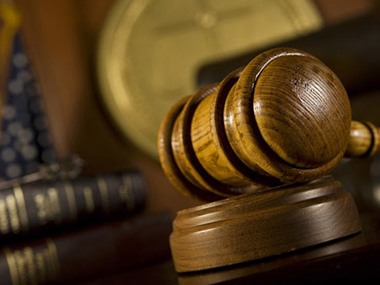By Maya Palit Last week, in its eagerness to cover two apparently sensational legal developments, national media bungled facts and produced misleading reports. First, it confused the difference between a High Court ‘ruling’ and ‘observation’ made by Chief Justice Suneet Kumar while hearing a case on 5 November, where a Muslim couple was seeking police protection. The husband revealed during the course of the hearing that he had divorced his previous wife with triple talaq, a fact that prompted the court to pass certain opinions about the practice. Somehow, the fact that these were observations rather than a ruling on triple talaq was distorted by the media: ‘Allahabad High Court rules triple talaq as ‘unconstitutional’ or similar headlines were visible all over major newspapers, everywhere from the The New Indian Express, The Statesman, The Times of India to the Odisha Sun Times. But in fact, as Aditya AK clarified in an article published by the legal journal Bar and Bench, there was no court ruling, and the Supreme Court is responsible for passing the verdict on triple talaq:
Contrary to various news reports, the Allahabad High Court did not determine the constitutionality or the legality of the Islamic practice of triple talaq. It did, however, note that its “judicial conscience” was disturbed by the practice, which it described as a “monstrosity”.
Another way to view the incident, as constitutional expert Alok Prasanna Kumar confirmed, is that the court merely “said stuff”, but this does not mean it “struck down” triple talaq. What, then, is the reason behind all the hype? “Most court reporters don’t have a background in law,” Aditya said, in an interview with The Ladies Finger, suggesting that this could be a possible reason for frequent wrong reportage. Kumar elaborated on this tendency within the media of capitalising on throw-away comments that could provide the public with a warped picture of the actual judgment:
In my experience, it is at the (editorial) desk where there is usually a loss in translation. When I have examined past cases of misleading facts in legal reporting, I have heard from court reporters that they sent the report to someone at the news desk. Then again, reporters often sit at the back of the court and if they can’t hear what is being said, speak amongst themselves to corroborate information, which can easily get mangled. What really needs to be done is to ensure that people at the desk take a few minutes to double check the copy with the court reporters so that terms like ‘ruling’ are not used interchangeably with other words.
Murali Krishnan, Associate Editor of _Bar and Benc_h, who has previously reported from the Supreme Court, said that in his experience reporters are often unable to hear the court proceedings in entirety because the courtroom is very loud. “What is said is often not very audible. In this age of breaking news, reporters might hear only part of the judgment and end up going with something the court might never have said.” [caption id=“attachment_2922760” align=“alignleft” width=“380”]  Representational image. CNN News18[/caption] In the case of the Allahabad High Court, perhaps there were other factors at play behind the misrepresentation. Gender rights lawyer Flavia Agnes suggested in an interview with Firstpost that the media’s emphasis on public criticism of Muslim law can be linked to right-wing propaganda. Kumar agreed with Agnes’ suggestion that media jumped on the bandwagon despite there being nothing new in the Allahabad High Court judgment because triple talaq has been an inflammatory and sensational issue for a while. He wondered why the judge passed an observation about triple talaq in a case about a couple applying for police protection. “Is it because a storm is being kicked up about it in the media already? The question is whether the court is being influenced by popular discourse, and realises that these observations will make headlines. Are the court and the media perversely feeding into each other?” However, it could also just be a case of careless fact-checking, which was certainly the reason that several media outlets announced erroneously that the Kerala High Court had ‘banned’ women from wearing salwar kameezes inside the Sree Padmanabhaswamy temple, when all the court concluded was that the final word on the dress code lies with the chief priest and that no one else was entitled to change it. A lawyer who wished to remain anonymous said such misleading headlines could have serious implications. “Someone reading these articles and seeing the word ‘bans’ or ‘ruling’ could misinterpret them and think that if a court has said it, even if it is an observation (by which I mean ‘opinion’) then that is the final rule of law. While ‘ruling’ determines the ultimate fate of a law suit, an ‘observation’ would simply be ranting.” Funnily enough, another series of misinterpretations on 18 November, 2016 suggested that a law degree was essential for journalists regularly reporting on Kerala High Court proceedings, but Judge P Ubaid confirmed on 26 November that this was a misunderstanding – the High Court had created norms to provide “additional benefits to accredited legal correspondents”. The solution to misleading headlines and distorted legal reporting might not lie in the rather extreme measure of insisting that reporters have a legal background. Kian Ganz, Publishing Editor of the news portal Legally India, recommended other measures like providing basic training for journalists in news organisations while reporting on legal issues. “The courts could set up a public relations department which could liaise with the media. They could also be more proactive in publishing the full judgments soon after hearings, which would mean that news desks would be able to check facts, understand the court proceedings prior to publishing, and [thereby] avoid ambiguity,” he added. One thing is for certain though: it’s about time that court reporters and the editorial desk at newspapers corresponded carefully to make things a little less confusing for the rest of us. The Ladies Finger (TLF) is a leading online women’s magazine delivering fresh and witty perspectives on politics, culture, health, sex, work and everything in between.


)

)
)
)
)
)
)
)
)



